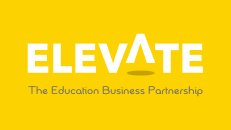Ever flipped through a report and thought, “Ah, another reminder of the reality we’ve been grappling with?”
That was precisely our reaction to the Double Disadvantage Report recently released by Speakers for Schools. Disappointed? Yes. Surprised? Not really… We’ve been sounding the alarm on this issue, amongst other work experience-related topics, for some time now.
Added to the mix is the looming general election. The Labour Party have made their intentions clear: a reintroduction of mandatory work experience should they come into power. Whilst this concept isn’t new to us – we’ve been delivering work experience for over a quarter of a century now – we understand that this change might be a daunting one to some. And with the facilitation landscape more saturated than ever, it’s really important that we are discussing work experience standards.
With this in mind, we’ve dived into the topic below, not just to nod in agreement with the Double Disadvantage Report, but also to question facilitation trends and improve our own offering.
THE MIRAGE OF “QUICKER” AND “CHEAPER” SELF-PLACEMENTS:
Facilitating successful work experience takes time and effort. The benefits for young people are undeniable across the board, yes, but let’s not kid ourselves; the path to impactful work experience is far from easy, and certainly not free.
With schools tightening their belts due to the cost-of-living crisis and the ever-increasing demands on already stretched-thin education staff, it’s no wonder some schools are turning to ‘quick-fix’ and ‘lower-cost’ facilitation options – and so many of these options lean heavily on self-placements.
Self-placements are great, and we always encourage young people to use their initiative and find a placement opportunity that they are passionate about, however, it’s now not uncommon for schools to only allow students who have found their own placements to go out on work experience at all. Whilst this might seem like a pragmatic approach, it’s also increasing the very inequalities that we in the careers and education spheres are so passionate about overcoming.
The sobering reality is this: only allowing for self-placements inadvertently favours students from more advantaged backgrounds.
These students typically have more access to well-established networks and resources and are more likely to secure placements that offer rich learning experiences, and valuable connections, and set them up for further success later in life.
In contrast, their less fortunate peers find themselves at a disadvantage yet again, left to navigate a landscape that is not only unfamiliar but also less accommodating to their needs.
None of us intend to be complicit in perpetuating inequality, yet the self-placement-only approach does just that. We recommend that anyone prioritising self-placements, for ease or to save on costs, read the Double Disadvantage Report!
“It is vital for educators to partner with existing organisations which could help them lift the burden and provide interventions that could support them delivering the same opportunities available to others from more privileged backgrounds.”
THE SAFEGUARDING CONUNDRUM:
When it comes to safeguarding, the stakes are sky-high – and rightly so! Yet, some of the schools with the strictest internal safeguarding procedures are sending their students out into workplaces without the same level of scrutiny.
Picture this: a stranger walks into a school’s reception asking for access to the building and students within…
Immediately, they are subjected to safeguarding procedures: identification is often checked, they are required to sign in and out, state the reason for their visit, and in most cases they require an escort in the form of a staff member to navigate their way around.
It’s a meticulous but important process designed to create a safe environment for students. However, when it comes to work experience facilitation, sometimes there is but a fraction of this.
This contradiction is not just perplexing; it’s alarming!
In the case of self-placements with employers known to the student, you might assume that any safeguarding procedures are less important – but we highly disagree with this. Whether a placement is with a stranger, a relative, a family friend, or a well-intentioned parent, the same rigorous safeguarding procedures should be non-negotiable.
A high reliance on insurance can also create a false sense of security. Just because a company is insured it doesn’t necessarily mean that the environment is entirely safe for students. Businesses have insurance primarily for their own sake, and insurance serves a reactive purpose, not a proactive one.
It’s akin to insuring a car; whilst the vehicle may be covered, it doesn’t guarantee the safety of the driver or passengers.
At our EBP, we take our responsibility to safety and wellbeing very seriously, and whilst we can’t divulge specific details, what we will say is that our Health and Safety Visitors have declined numerous placements with parents, friends, and family, as well as placements with fully insured businesses, due to health and safety concerns.
We understand that cost-cutting measures are tempting educators to opt for less rigorous facilitation procedures. Still, we find ourselves questioning: Can we really put a price on safety? Or do the potential risks and long-term consequences far outweigh any immediate financial savings?
OUR WORK EXPERIENCE PROMISE:
So, what’s our game plan in this ever-evolving, saturated landscape? Well, in response to all that we’ve pointed to above, we’re doubling down on our commitments with the introduction of our Work Experience Promise:
WORK EXPERIENCE PROMISE:
We promise to find an opportunity for every student, regardless of their social or economic background, whilst prioritising their safety through our rigorous assurance check model. We promise to open communication and unwavering support for students, schools, educators, and parents. We promise to lighten the administrative load for schools. And most importantly, we promise to have your back.
Our Work Experience Programme is competitively priced, offering exceptional value for money without compromising on quality or safety. We’re thrilled to announce that our diaries are now open for the 2024/25 academic year.
For more information, contact Joanne:
Joanne.Huddart@elevate-ebp.co.uk
0151 330 5751
*You can find the Double Disadvantage Report by Speakers for Schools here.


Recent Comments